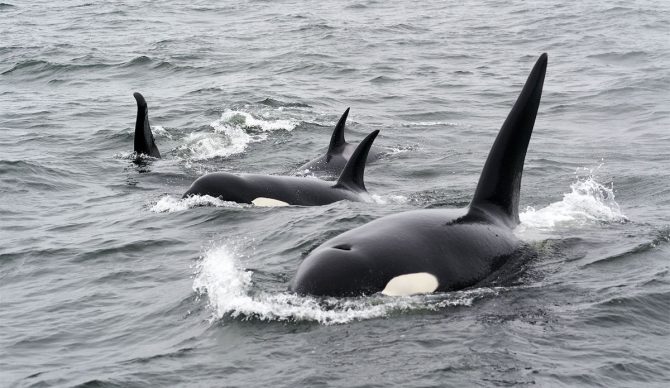
Photo: Unsplash//Mike Doherty
Despite the cuddly reputation earned from performances at SeaWorld and in Free Willy, Orcas are pretty scary. In fact, they can be a downright menace, sometimes. For humans, that’s mostly limited to their propensity for terrorizing boats in the Strait of Gibraltar, but for sharks, it’s a whole other – more terrifying – story. Researchers have previously documented orcas in California and South Africa targeting sharks, immobilizing them, and ripping out their livers. Now, it appears the behavior is happening in Australia, too, according to a new study published in the journal Ecology and Evolution.
It started with the 2023 discovery of a dead 15-foot shark on a beach in southeastern Australia. “The liver, digestive and reproductive organs were missing, and there were four distinctive bite wounds, one of which was characteristic of liver extraction by killer whale, similar to what has been observed in South Africa,” said Isabella Reeves in a Flinders University press release. Reeves is a PhD candidate with Flinders University’s Southern Shark Ecology Group and the West Australian Cetacean Research Center, as well as lead author of the study.
Researchers took swabs from the shark’s bite wounds in order to sequence the genetic material left over from the attacker. Based on that, they were able to confirm the presence of killer whale DNA in the primary bite wound, along with DNA from scavenging broadnose sevengill sharks in three other wounds. “These findings provide compelling evidence of killer whale predation on white sharks in Australian waters, with a strong indication of selective liver consumption,” continued Reeves. “This suggests that such predation events may be more widespread and prevalent across the globe than previously believed.”

